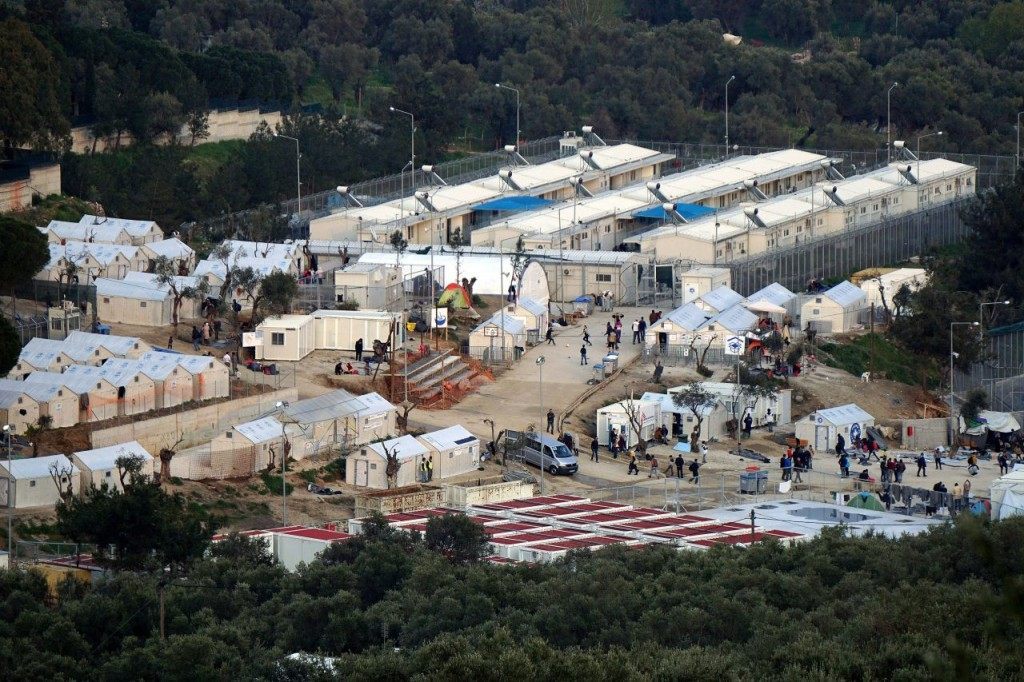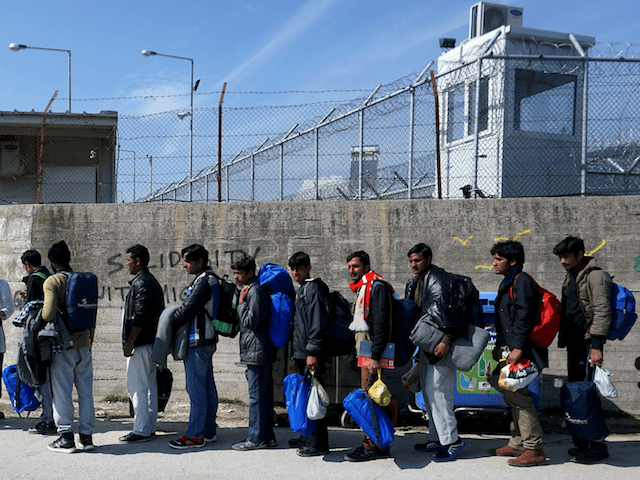(Reuters) – Greece said on Thursday it would speed up the creation of reception centres for up to 30,000 migrants to help cope with a sharp rise in numbers because of border closures in the Balkans that cut off the main migration route to wealthy western Europe.
Tens of thousands of refugees and migrants are stranded in Greece, straining resources of the recession-hit country that has borne the brunt of a massive influx into Europe of people fleeing conflict in the Middle East for more than a year.
“We will attempt to create reception facilities for 30,000 people over the next 20 days,” said George Kyritsis, a Greek government spokesman for the refugee crisis. Greece now has some 38,000 positions available in reception centres for refugees.
There were almost 50,000 refugees and migrants in Greece on Thursday, many living in squalid conditions in tents near its northern border with Macedonia, waiting for a border to open.

A picture shows a view of the Moria camp for migrants and refugees on the Greek island of Lesbos on March 20, 2016.
Kyritsis said it was a priority that migrants left the camp, close to the border town of Idomeni. “The border (to Macedonia) is shut, and it’s futile for them to stay there.”
The European Union and Turkey last week agreed to halt the flow of migrants to Europe in return for political and financial rewards for Ankara, sealing off the main route by which a million migrants poured across the Aegean into Greece last year.
Human rights organisations reject the pact, which fast-tracks registration and asylum applications under which hundreds of new arrivals have been detained since Sunday. Refugees or migrants whose applications fail will be sent back to Turkey.
Aid agencies have said that cooperating with the Greeks at detention centres would make them complicit with a practise they say runs roughshod over human rights.
The U.N. refugee agency UNHCR is now refusing to provide transport for newly-arrived migrants escorted to registration centres. Since March 20, when the EU-Turkey accord took effect, migrants and refugees are not allowed to leave the centres, effectively turning them into detention camps, critics say.
Kyritsis said the centres were not detention centres but areas where refugees needed to be “kept under supervision”.

COMMENTS
Please let us know if you're having issues with commenting.